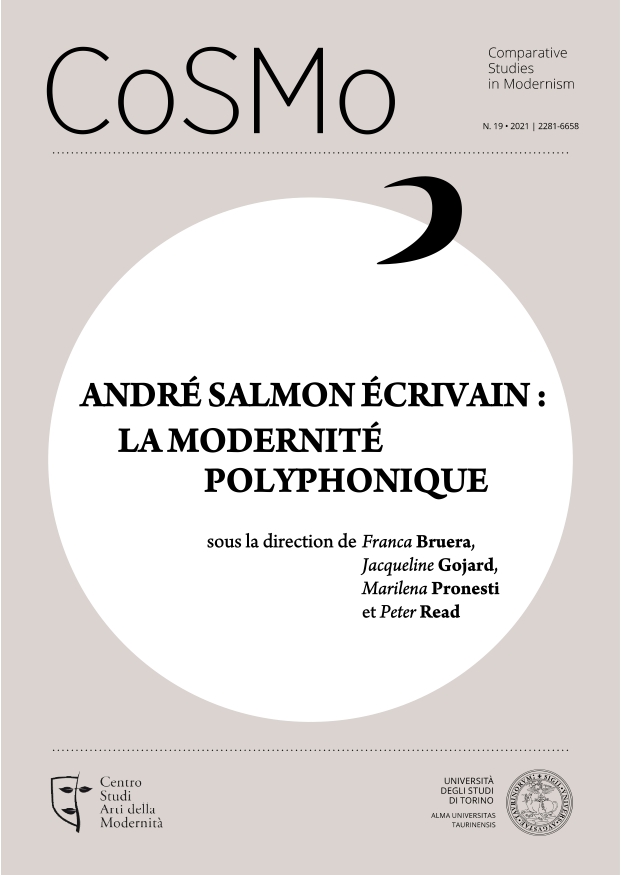« Le faux n’est révéré que pour l’amour du vrai »
Salmon et « Prikaz »
DOI:
https://doi.org/10.13135/2281-6658/6345Parole chiave:
André Salmon, Revolution, Modernism, Avant-garde, AuthenticityAbstract
This article argues that André Salmon’s Prikaz (1919) mounts a virulent critique of pre-World War I aestheticism through an obsessive return to the idea of falsity – false appearances, inauthenticity, the counterfeit, and related leitmotive. On the one hand, the poem proposes itself as “mere” play, a carnival that’s all for show; on the other, this representational “fake” concerns real horrors and atrocities. Although Salmon explicitly suggests that he reserves all judgment with regard to the Revolution, the poem seems to demand that the reader judge for her own sake whether historical atrocities are an acceptable object for a playful, poeticized representation. In the wake of the historical trauma of World War I, the Revolution, and the Spanish flu, this voluntary ambiguity seems to tempt the reader to decide one way or the other – and it proves difficult not to condemn the pre-war aestheticism Salmon stages.
Downloads
##submission.downloads##
Pubblicato
Fascicolo
Sezione
Licenza
Gli autori mantengono i diritti sulla loro opera e cedono alla rivista il diritto di prima pubblicazione dell'opera, contemporaneamente licenziata sotto una Licenza Creative Commons - Attribuzione che permette ad altri di condividere l'opera indicando la paternità intellettuale e la prima pubblicazione su questa rivista.







